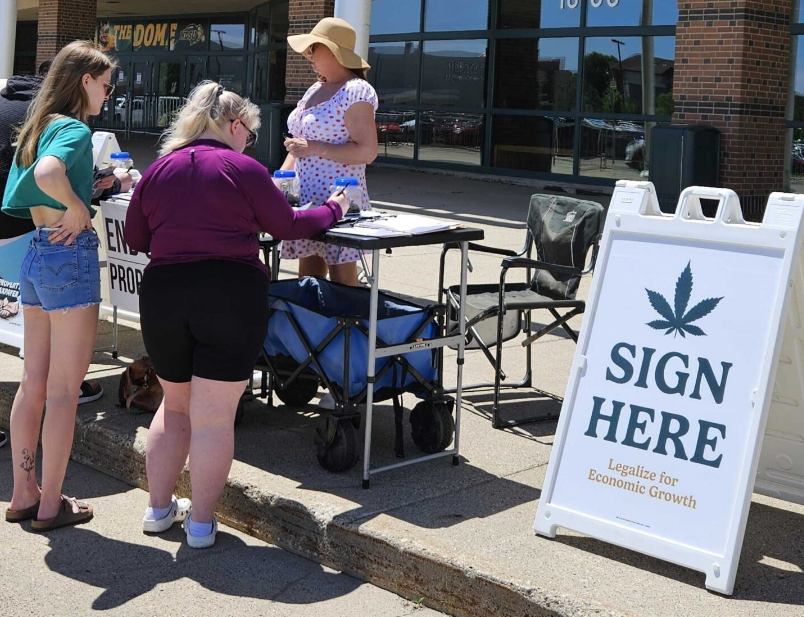A coalition in Massachusetts says it’s nailed down enough signatures to put a bold question on the 2026 ballot: should the state kill its booming adult-use marijuana market? This move comes as critics cry foul over alleged voter tricks, sparking a heated fight over a $1.6 billion industry. What could this mean for users, businesses, and the future of legal weed in the Bay State?
The Coalition for a Healthy Massachusetts turned heads this week by claiming victory in its signature drive. A spokesperson told reporters the group is “confident” it has gathered more than the required 74,574 valid signatures from registered voters. They submitted them just ahead of the November 19 deadline, setting the stage for a potential voter showdown in 2026.
This initiative aims to end recreational marijuana sales while keeping medical use intact. If it passes, it would undo the 2016 voter-approved law that legalized adult-use cannabis. Back then, 53.6 percent of Massachusetts voters said yes to legalization, launching an industry that now pulls in about $1.6 billion a year, according to state data from the Cannabis Control Commission.
The coalition argues that legal pot has brought more harm than good. They point to issues like corruption in the rollout of sales and rising concerns over public health. Campaign leaders say they’ve heard from everyday folks worried about increased drug use among youth and road safety risks.
Recent reports show the group started collecting signatures months ago, facing pushback from pro-cannabis groups. But with this submission, the ball now rolls to local election officials for verification.
Fraud Accusations Heat Up the Debate
Not everyone is cheering. Accusations of shady tactics have dogged the coalition’s petition drive. Pro-cannabis advocates claim signature gatherers misled voters, tricking them into signing without full details.
The Massachusetts Cannabis Business Association has been vocal, calling out what they describe as “organized voter fraud” statewide. Complaints poured into the Secretary of the Commonwealth’s office from people who said they signed petitions without reading them, thinking it was about something else.
One key charge: petitioners allegedly told folks the measure would protect medical marijuana without mentioning the ban on recreational sales. This has led to calls for investigations, with some urging the state attorney general to step in.
In response, the coalition denies any wrongdoing. They blame the uproar on the marijuana industry trying to protect its profits. A spokesperson said all petitioners followed the rules, and any isolated issues don’t taint the whole effort.
These claims aren’t new. Similar gripes surfaced weeks ago, with reports of deceptive practices in places like Boston and beyond. If proven, it could delay or derail the ballot push.
- Voters reported being approached at public spots like malls and events.
- Some said gatherers used confusing language to rush signatures.
- Officials are now reviewing complaints as part of the verification process.

Impact on Businesses and Users
If this ballot question makes it and wins, the fallout could be huge. Massachusetts has over 300 licensed dispensaries serving adults 21 and up. Shutting down recreational sales would hit jobs hard, with estimates from industry groups suggesting thousands could lose work.
The state’s cannabis market has grown fast since 2018, when the first shops opened. Sales topped $1 billion in 2021 alone, per commission reports, and keep climbing. Taxes from pot bring in millions for schools, roads, and health programs.
For everyday users, a ban would mean going back to underground sources or traveling out of state. Medical patients would still have access, but critics worry it could stigmatize all cannabis use.
On the flip side, supporters say ending recreational sales would curb addiction and protect communities. They cite studies, like a 2023 report from the Massachusetts Department of Public Health, showing a spike in cannabis-related emergency room visits since legalization.
Business owners are gearing up for a fight. Groups like the Cannabis Business Association plan ad campaigns to rally voters against the repeal.
| Year | Adult-Use Sales (in billions) | Tax Revenue (in millions) |
|---|---|---|
| 2021 | 1.0 | 200 |
| 2022 | 1.3 | 250 |
| 2023 | 1.5 | 300 |
| 2024 | 1.6 | 320 |
This table highlights the industry’s growth, based on official state figures.
What’s Next in the Ballot Battle
Now, the focus shifts to certification. Local clerks have until early December to check signatures, then it’s up to the secretary of state to green-light the question for the 2026 ballot.
If cleared, both sides will ramp up efforts. Pro-ban groups might highlight personal stories of addiction, while opponents could stress economic benefits and personal freedoms.
The coalition needs to clear more hurdles, like potential legal challenges over the fraud claims. Past ballot drives in Massachusetts have faced similar scrutiny, sometimes leading to court battles.
Voters will have the final say, but the debate is already dividing communities. Some towns that voted against legalization in 2016, like Andover and Barnstable, might swing the outcome.
This push reflects a broader national tug-of-war over cannabis. While places like Florida fight to expand access, Massachusetts could be the first state to reverse course on full legalization.
As Massachusetts stands on the brink of a major policy shift, this ballot bid underscores deep divides over drugs, health, and money. It could reshape lives for millions, from small business owners scraping by to families dealing with substance issues. The fight ahead promises twists, with truth and trust at stake.
